#*the united states vs billie holiday
Text



THE UNITED STATES VS BILLIE HOLIDAY
Dir. Lee Daniels (2021)
#the united states vs billie holiday#trevante rhodes#andra day#filmgifs#filmedit#cinemapix#userbbelcher#useraurore#pocedit#wocedit#pocfiction#dailyflicks#chewieblog#junkfooddaily#tvandfilm#bymelii
352 notes
·
View notes
Text
Okay, I finally watched The United States vs Billie Holiday. Ohhh my chest 😩😩😩 it fn hurts 😩😩😩 that poor woman 😭😭😭😭
I gotta applaud yall though. As much as yall praised Trevante Rhodes, not nary a one of you spoiled how toxic he is. I love yall frfr 😩
Deff dont know I slept well after that movie
#megamind be watching#the united states vs billie holiday#am baby#cried my fn eyes out#so damn sad#strange fruit always been a visceral bop
18 notes
·
View notes
Text
The United States vs Billie Holiday (2021)
#xothemedia#hulu#the united states vs billie holiday hulu#the united states vs billie holiday#billie holiday#jimmy fletcher#trevante rhodes#andra day#romance#acts of service#biopic#dailytvandfilm#blackactressesdaily#blackactorsdaily#black history month#black history#black love#black movie#black couple
17 notes
·
View notes
Text
Oscar Nominee of All Time Tournament: Round 1, Group A
(info about nominees under the poll)


JANET MCTEER (1961-)
NOMINATIONS:
Lead- 1999 for Tumbleweeds
Supporting- 2011 for Albert Nobbs
--
ANDRA DAY (1984-)
NOMINATIONS:
Lead- 2020 for The United States vs Billie Holiday
#oscars#academy awards#oscar nominees#actors#film#janet mcteer#andra day#tumbleweeds 1999#albert nobbs#the united states vs billie holiday#nominees group a#nominees group a polls
5 notes
·
View notes
Text

Happy Birthday Natasha 🥳🎂🎈🎁🎉
April 4,1979
Buon Compleanno 🥳🎂🎈🎁🎉
4 Aprile 1979
#natasha lyonne#actress#world cinema#movies#cinema#film#cinemetography#filmography#drama movies#comedy movies#tv shows#90s movies#2000s movies#dennis the menace#american pie#party monster#blade trinity#the united states vs billie holiday#orange is the new black#nicky nichols#russian doll#portlandia#celebrity#happy birthday
5 notes
·
View notes
Text
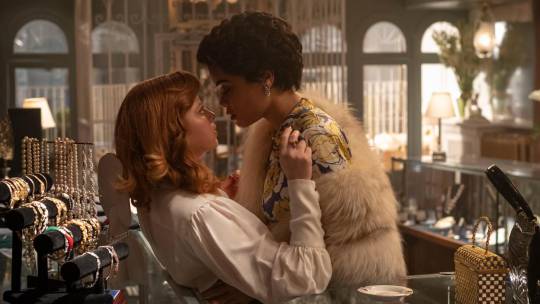
Natasha Lyonne and Andra Day as Tallulah Bankhead and Billie Holiday
7 notes
·
View notes
Text

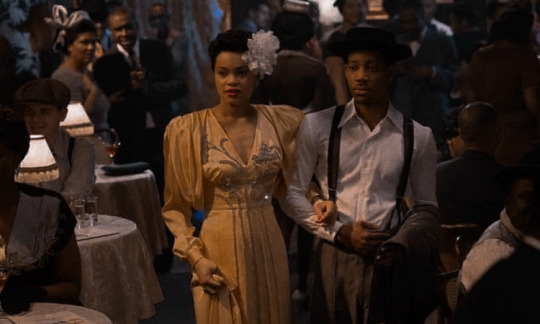
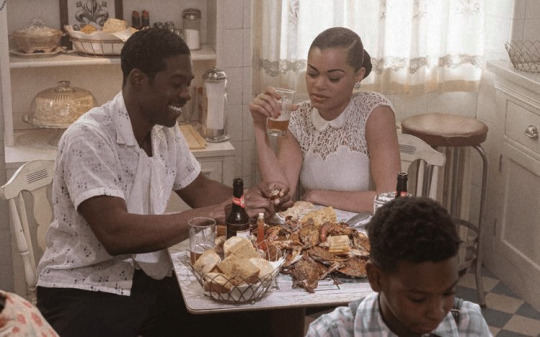
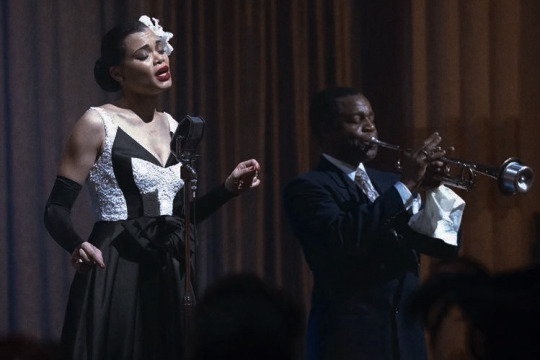

Andra Day in The United States vs. Billie Holliday (2021) || Dir. Lee Daniels
#black hollywood#black actors#icon#billie holiday#Andra Day#rise up#hulu#black is beautiful#the United States vs Billie Holliday#black singers#black power#trailblazer#strange fruit#your grandkids will be singing strange fruit#suck my black ass
15 notes
·
View notes
Text

"Billie no tiene a nadie. Cantar es su vida y le da eso al mundo. Entonces al final del día, no lastima a nadie más que a sí misma."
#billie holiday#the united states vs. billie holiday#movies#films#cinematography#cinemetography#cinema#movie#film#drama#movie history#Paramount Pictures#movie trailer#film review#strange fruit#novel#woman#power#history
6 notes
·
View notes
Text
“Strange Fruit,” a song protesting the lynching of African Americans, was popularized by Holiday, but originally written by American composer and poet Abel Meeropol — a teensy-weensy detail that the movie conveniently leaves out.
0 notes
Video
youtube
Andra Day - Strange Fruit [A GRAMMY® Salute to the Sounds of Change Performance]
1 note
·
View note
Text
Billie Holiday Vs The US Government - Extra History
Billie Holiday Vs The US Government – Extra History
Billie Holiday Vs The US Government – Extra History
What Is It?
The YouTube video Billie Holiday Vs The US Government – Extra History by the YouTube channel Extra Credits.
Here is the description for this video:
—- To learn more about Brilliant, go to https://brilliant.org/ExtraCredits/ and sign up for free. And also, the first 200 people that go to that link will get 20% off the annual…

View On WordPress
#Addiction#Billie Holiday#Billie Holiday Strange Fruit#Billie Holiday Vs The US Government - Extra History#Extra Credits#FBI#Government#History#Music#Race#Racism#Strange Fruit#United States#Video
0 notes
Text

Today In History
Billie Holiday, influential blues legend, was born in Philadelphia, PA, on this date April 7, 1915.
Holiday first rose to prominence in the 1930’s with a unique style that reinvented the conventions of modern singing and performance. More than 80 years after making her first recording Billie’s legacy continues to embody what is elegant and cool in contemporary music.
Also known as Lady Day, Billie Holliday autobiography was made into the 1972 film Lady Sings the Blues starring Diana Ross as Billy Holiday.
The evocative, soulful voice which she boldly put forth as a force for good, turned any song she sang into her own.
Today, Billie Holiday is remembered for her musical masterpieces, her songwriting skills, creativity and courageous views on inequality and justice. In 2000, Holiday was inducted into the Rock and Roll Hall of Fame.
In 2021 the film The United States vs. Billie Holilday Directed by Lee Daniels @leedaniels and stars Andra Day @andradaymusic in the lead role playing Billie Holliday won the Golden Globe Award for Best Actress in a Motion Picture – Drama, and was nominated for an Academy Award for Best Actress.
CARTER™️ Magazine
#billie holiday#carter magazine#historyandhiphop365#wherehistoryandhiphopmeet#history#carter#cartermagazine#today in history#staywoke#blackhistory#blackhistorymonth
59 notes
·
View notes
Text

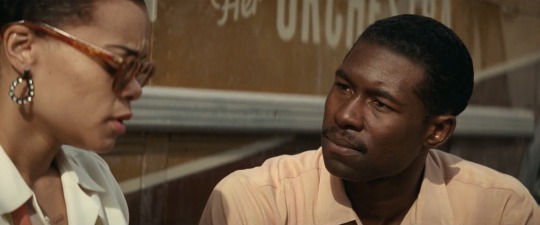
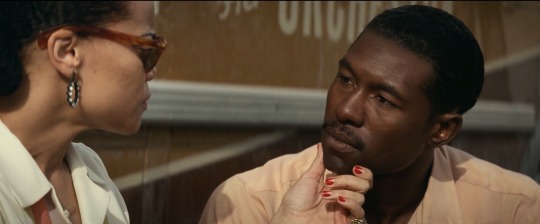

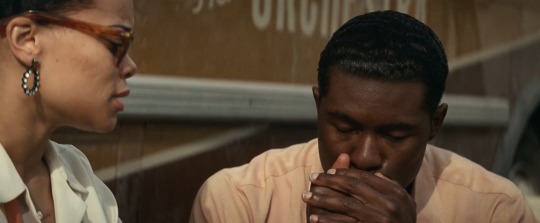
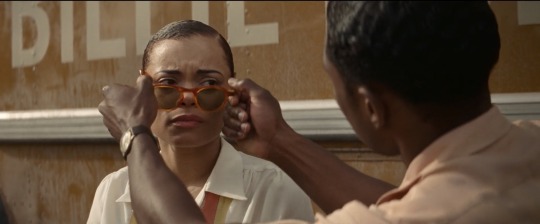
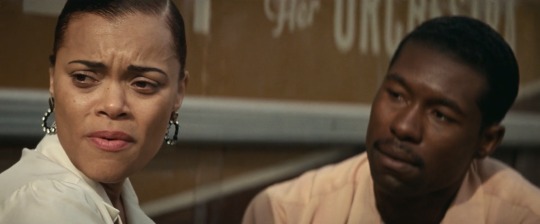


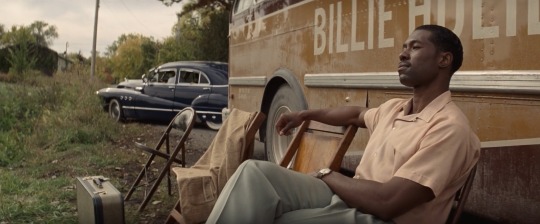
“See you in church, Soldier Boy.”
The United States vs. Billie Holiday (2021)
#xothemedia#the United States vs Billie holiday#trevante rhodes#andra day#billie holiday#Billie x jimmy#the United States vs Billie holiday Hulu#Hulu#Hulu movie#drama#biopic#romance#jimmy fletcher#screen caps#screen cap#black couple#black love#black movie
9 notes
·
View notes
Text

Billie Holiday (born Eleanora Fagan; April 7, 1915 – July 17, 1959) was an American jazz and swing music singer. Nicknamed "Lady Day" by her friend and music partner, Lester Young, Holiday had an innovative influence on jazz music and pop singing. Her vocal style, strongly inspired by jazz instrumentalists, pioneered a new way of manipulating phrasing and tempo. She was known for her vocal delivery and improvisational skills. Holiday won four Grammy Awards, all of them posthumously, for Best Historical Album. She was inducted into the Grammy Hall of Fame and the National Rhythm & Blues Hall of Fame. After a turbulent childhood, Holiday began singing in nightclubs in Harlem, where she was heard by producer John Hammond, who liked her voice. She signed a recording contract with Brunswick in 1935. Collaborations with Teddy Wilson produced the hit "What a Little Moonlight Can Do", which became a jazz standard. Throughout the 1930s and 1940s, Holiday had mainstream success on labels such as Columbia and Decca. By the late 1940s, however, she was beset with legal troubles and drug abuse. After a short prison sentence, she performed at a sold-out concert at Carnegie Hall. She was a successful concert performer throughout the 1950s with two further sold-out shows at Carnegie Hall. Because of personal struggles and an altered voice, her final recordings were met with mixed reaction but were mild commercial successes. Her final album, Lady in Satin, was released in 1958. Holiday died of cirrhosis on July 17, 1959, at age 44. In 2000, she was also inducted into the Rock & Roll Hall of Fame as an early influence; their website states that "Billie Holiday changed jazz forever". She was named one of the 50 Great Voices by NPR; and was ranked fourth on the Rolling Stone list of "200 Greatest Singers of All Time" (2023). Several films about her life have been released, most recently The United States vs. Billie Holiday (2021).
93 notes
·
View notes
Text
It's Black History Month, here's a list of Black Queer Films and Documentaries to watch all year long. This is just a fraction of the movies that exist, many people on Letterbox'd have plenty of lists for Black Queer movies that you should check out.
Please check trigger warnings, some of these films deal with very heavy topics, protect yourselves.
Portrait Of Jason (1967)
The Color Purple (1982)
Tongues Untied (1989)
Looking For Langston (1989)
The Women Of Brewster Place (1989)
Paris Is Burning (1990)
Young Soul Rebels (1991)
Black Is ... Black Ain't (1994)
When Night Is Falling (1995)
Set It Off (1996)
The Watermelon Woman (1996)
Destiny (Dakan) (1997)
Holiday Heart (2000)
Punks (2000)
Madame Satã (2002)
Noah's Ark (2004)
Brother To Brother (2004)
The Aggressives (2005)
Rent (2005)
Rag Tag (2006)
Noah's Ark: Jumping The Broom (2008)
Mississippi Damned (2009)
Fig Trees (2009)
Difficult Love (2010)
Gun Hill Road (2011)
Pariah (2011)
Leave It On The Floor (2011)
The Skinny (2012)
Stud Life (2012)
Naz & Maalik (2014)
Blackbird (2014)
Out In The Night (2014)
Girlhood (2014)
Dear White People (2014)
Bessie (2015)
The Eiffel Tower Mystery (2015)
Tangerine (2015)
Kiki (2016)
Suicide Kale (2016)
Jewel's Catch One (2016)
Check It (2016)
I Am Not Your N*gro (2016)
Moonlight (2017)
The Pearl Of Africa (2017)
The Wound (2017)
Good Manners (2017)
Saturday Church (2017)
Rafiki (2018)
Shakedown (2018)
Hearts Beat Loud (2018)
Pier Kids: The Life (2018)
Selah And The Spades (2019)
Trigonometry (2020)
Kelet (2020)
The Christmas Lottery (2020)
Disclosure (2020)
Tahara (2020)
Boy Meets Boy (2021)
The United States vs Billie Holiday (2021)
Anything's Possible (2022)
#lgbt#lgbtq#lgbtqa#lgbtqia#queer#alphabet mafia#lesbian#gay#bisexual#transgender#non binary#pansexual#mlm#lgbtq movies#wlw#sapphic#black history month#black queer movies#queer movies#February#love is love#lesbian couples#gay couples#trans#enby#lgbtq films#queer representation#lgbtq characters#black movies#lists
151 notes
·
View notes
Text
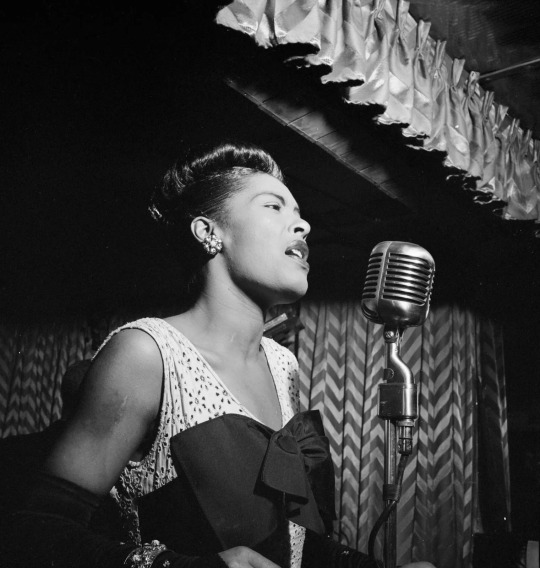

"Strange Fruit" was originally a poem written by Jewish-American writer, teacher and songwriter Abel Meeropol, under his pseudonym Lewis Allan, as a protest against lynchings and later set it to music.
First performed by Meeropol's wife and their friends in social contexts, his protest song gained a certain success in and around New York.
The song soon came to Billie Holiday's attention, and after so many frequent requests of that song, she closed out every performance with it. The waiters would stop serving ahead of time for complete silence, the room would darken, a spotlight would shine on Holiday's face, and there would be no encore radio stations in the South wouldn't play it, record labels wouldn't record it, and yet the song rose in the charts selling over one million copies.
Despite the success, a government agency was determined to shut her down. One night in 1939, Holiday received a warning from the Federal Bureau of Narcotics to never sing the song again. This order was led by FBN commissioner Harry Anslinger, also known as an "extreme racist in the 1920's".
He had a mission to eradicate all drugs everywhere, and believed jazz music was the problem. His attack on this genre of music was racially led.
Holiday's known struggles with alcohol, drugs, and vocal voice against white supremacy made her a target. He sent undercover agents after her, including arranging for her abusive husband to set her up.
She was put on trial (The United States of America vs. Billie Holiday) just wanting to recover, but was sent to prison and her cabaret license was revoked. That didn't keep her down. She continue to perform "Strange Fruit" even at a sold out show at Carnegie Hall.
In 1959, Holiday collapsed and was sent to the hospital with liver disease and goes into heroin withdrawal. Her friend managed to have the hospital give her methadone to help her recover.
Arslinger's team arrested her on her hospital bed cutting off her methadone medication after claiming to have found heroin in her bedroom. 10 days later, Holiday died.
•••
“Strange Fruit” (Fruto Extraño) originalmente fue un poema escrito por un escritor, profesor y compositor judío-estadounidense llamado Abel Meeropol, bajo su seudónimo Lewis Allan, como una protesta en contra de los linchamientos y luego se convirtió en musica.
Primero fue interpretada por la esposa y los amigos de Meeropol, más que nada en contextos sociales. Su canción de protesta ganó cierto éxito en los alrededores de Nueva York.
Pronto la canción le llamó la atención a Billie Holiday y después de recibir tantas solicitudes para esta canción, era con esta que cerraba cada una de sus presentaciones. Los meseros dejaban de atender las mesas antes de tiempo para que hubiera completo silencio, la habitación se oscurecía y una luz alumbraba la cara de Holiday. No había ni una sola estación de radio en el sur que no reprodujera la canción, las disqueras no querían grabarla pero aún así la canción subío de posición en las carteleras, vendiendo alrededor de un millón de copias.
A pesar del éxito, había una agencia gubernamental que estaba determinada a callarla . Una noche en 1939, Holiday recibió una advertencia por parte de la Oficina Federal de Narcóticos, le dijeron que jamás volviera a cantar esa canción. Esta orden estaba siendo dirigida por el Comisionado Harry Anslinger, también conocido como “un racista extremista de los 1920”.
Tenía la misión de erradicar todas las drogas en todos lados y creía que la música jazz era el problema. Su ataque a este género musical fue racialmente dirigido.
Las conocidas luchas que Holiday tenía con el alcohol y las drogas, y el uso de su voz contra la supremacía blanca la convirtieron en un objetivo. Envió agentes encubiertos tras ella, incluso haciendo arreglos para que su esposo abusivo le tendiera trampas.
Fue llevada a juicio (Los Estados Unidos de América vs. Billie Holiday) cuando lo único que que quería era recuperarse, pero fue enviada a prisión y le quitaron su licencia de cabaret, pero eso no la detuvo. Siguió cantando Strange Fruit (Fruto Extraño), agotando los boletos para su presentación en Carnegie Hall.
En 1959, Holiday colapsó y fue enviada al hospital con enfermedad hepática y entró en abstinencia por heroína. Una de sus amigas logró hacer que el hospital le diera metadona para ayudarle a recuperarse.
El equipo de Anslinger la arrestó en su cama de hospital, le cortaron su medicamento, metadona, afirmando que habían encontrado heroína en la habitación. 10 días después, Holiday falleció.

#blacklivesmatter#blacklivesalwaysmatter#english#spanish#blackhistory#history#share#read#blackpeoplematter#blackhistorymonth#blackhistoryyear#billie holiday#strange fruit#black history is american history#culture#knowyourhistory#like#follow#historyfacts#blackgirlmagic#blackmusicmatters#black music#jazz#blues#music genres#blackbloggers#no justice no peace#spotify#musicians#music
76 notes
·
View notes